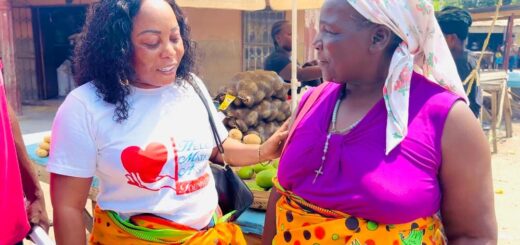The lion from Mbole Village – A profile of Daniel Chibbwalu Munkombwe (1932 -2018 M.H.S.R.I.P)
Notice: Undefined index: catFilterList in /home/zambi/public_html/wp-content/plugins/wp-likes/api.php on line 243
Through my Eyes by Charles Mafa
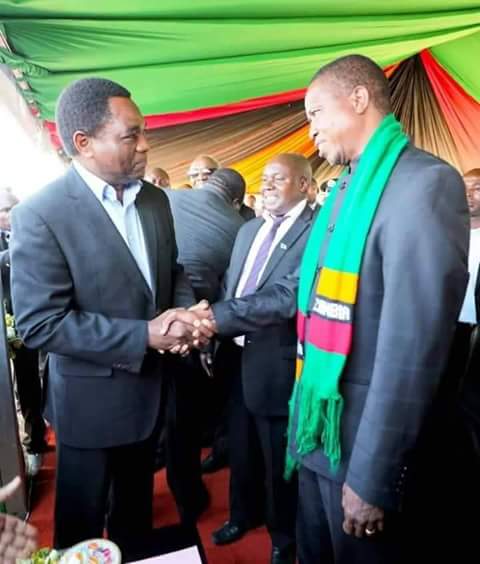
Hakainde Hichiema with Edgar Chagwa Lungu Wednesday in Choma 20 June 2018 (2)
Mr. Munkombwe is no more but he will be remembered, for among other things, his comment that “we all go into government to eat.” In 2013, I visited Mr. Munkombwe at his Kabebya Farm in Choma to interview him for the Bulletin and Record Magazine. When asked how he would like to be remembered, he gave the following response:
“I want to die a politician that is admirable, a politician that is likeable. Of course you can’t be liked by everybody; you can’t be liked by your perceived opponents. It’s not possible!”
Daniel Chibbwalu Munkombwe defies categorisation. He has been called a radical, a lion and even someone “from the archives”. Whatever anyone may call him, he is a man for all seasons. He has worked with both the UNIP and MMD governments and, now at age 81, people may have thought there might not be a role for him in modern politics. They were wrong. His nomination as a Member of Parliament and subsequent appointment as Southern Province Minister by President Michael Sata, proved him to be a “roof compound”, as he puts it himself.
“If there is a patch which I can patch,” he says cheerfully, “if I can be a stabilising force, if I can be glue… anyhow, I am saying if I can be roof compound, if I can seal any leaking hole, why should I say no?”
This was Mr. Munkombwe’s reaction when the B&R asked him whether he was ready to take up a position in the Patriotic Front Government when called upon. Some observers believe he is being rewarded for assisting the PF win the recent Livingstone parliamentary by-election, and they say that Mr. Munkombwe has mastered the art of Zambian politics and knows what to say at a particular time to attract attention from the appointing authorities.
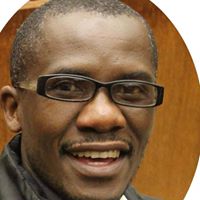
Through My Eyes by Charles Mafa
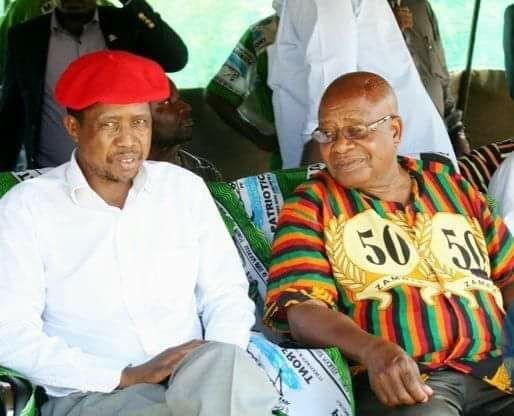
Edgar Chagwa Lungu with Daniel Chibbwalu Munkombwe
Indeed there may be some truth in this as he has often openly suggested that politics is about personal benefit. But this man has a unique character that has endeared him to Zambia’s leaders. He points to his two children who sit next to him during the interview. “I think these will one day describe me as a father who never feared anything. Physically, I’m a lion – they call me munyama, an animal. If I lose my heart, I am an animal but a generous person – a big heart to look after people.”
Mr. Munkombwe’s candid character has earned him enemies and friends alike, and it is this temperament that has seen him rise and fall at the hands of different political regimes in Zambia. In fact, during this interview at his Kabebya Farm in Choma, Mr. Munkombwe did not hesitate to deliver a withering rebuke to people who support regional politics. In an obvious reference to the United Party for National Development’s leader, Hakainde Hichilema, he said there is a price to pay for such politicians.
“If you’re a regional leader you don’t go to State House,” he said, while taking long pauses in between statements as if ready to pounce. “That’s a price. So you will continue putting people into a warmer. In 2001, you lose, you put them into a warmer and they agree. Then in 2006, you lose again, you also put them into a warmer, they will continue.”
He added that in politics you have to join people who are able to rule. He said this while recounting his own experience when he was in the African National Congress (ANC), led by late Harry Mwaanga Nkumbula, and which controlled southern and central Zambia.
“In Tonga, we have a saying, mukali uzwa mubunji (a tough person emerges from among the many).
When Vernon Mwaanga, Elijah Mudenda and Mainza Chona joined UNIP, we thought they were mad. He added: “So if you want to be regional, parties continue forever, but you will be a permanent member of the opposition.”
The former freedom fighter described the privilege of serving in all the governments as a cherished memory of a lifetime, adding: “… A person useful anywhere can be useful everywhere and I think that is what I am. I’m useful everywhere.”
Mr. Munkombwe has served in all governments since independence. Asked what he thinks about Zambia’s former presidents, he refused to dwell on negatives, just saying: “They were able to use me fully. Kenneth Kaunda is a fantastic man, an upright man, we had a very excellent working relationship. Chiluba was an eloquent man, equally straightforward. Mwanawasa was a legalistic man; he wanted to do everything to the perfect arm of the law.”
With a bit of hesitation, this is what he said about Rupiah Banda: “Banda, aaah, he is a very difficult man to describe but I think, eeeh, as a minister under Rupiah Banda’s administration, he also allowed me to work freely.”
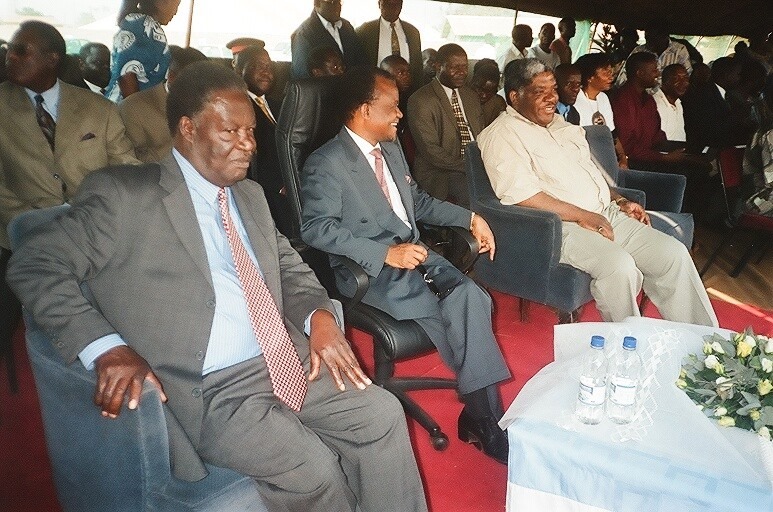
Sata, Chiluba and Mwanawasa
Some of the portfolios Mr Munkombwe has held include Minister of State from 1983 – 1987, Minister of Decentralisation from 1987 to 1991 and Member of the Central Committee in the UNIP government. He served as MMD Southern Province minister and deputy minister in the office of the Vice President during the Levy Mwanawasa and Rupiah Banda administrations between 2007 and 2010 respectively.
Mr. Munkombwe was born on 16th May 1932 in Mbole Village of Chief Maacha from a peasant family. His father, Phillip Chibbwalu Moono, was a student at Sikalongo Mission when it was established in 1916, and his mother was Mankuche Mwaanga of Chief Singani’s royal family. The veteran politician says his father was recruited as a soldier and ended up being regimental sergeant major — “the highest position held by an African at the time” — and fought in the “British war” (Second World War) of 1939 to 1945. When his father went to war, he, together with his siblings, were taken to Chief Macha’s Village were his father’s young sister was married. There he got involved in herding cattle – a move that delayed his education. He started school in 1945 when he was 13 years old.
“I went to school at Macha Central, Muyanda, Sikalongo Mission and Matopo Secondary (Zimbabwe) for my standard 7 and 8 that time. And I came back in December 1954 to live with my uncle, the late Samson Simakulika Mwaanga, Vernon Mwaanga’s father,” he narrated.
On whether he is disappointed that he had to start his education when he was so comparatively old, he responds cheekily that he is a “beneficiary of child labour.”
His stern background has given him the personal discipline to persevere in life he says, and it has also given him a streak of stubbornness. For example, his first attempt to work in government lasted for only a day.
“When I came in to Kalomo, there was an English student who was at Oxford University doing his research. When I came with letters from his senior, he greeted me by saying “good afternoon my boy”. That word is derogatory, he said. “I am a temperamental man, so I folded the letter and threw it in his face. I said ‘you can keep your job, I’m going’.”
Mr. Munkombwe started his political career as a freedom fighter with the ANC in the 1950s. In 1956, he was elected ANC Livingstone District secretary and the following year he helped organize the boycott of shops as a protest against those whites who were forcing Africans to buy items through a window. These protests angered the British colonial government and Mr. Munkombwe and his friends who included Amon Lungu, Isaac Kanyerere and others ended up being arrested.
His early political carrier also saw him elected ANC provincial vice president and in 1962, he became provincial chairman, making him a key ally of Harry Mwaanga Nkumbula.
Mr. Munkombwe’s love for football has led him to sponsor football teams such as Choma United and he currently funds Kabebya United, a former division one outfit. He also helped found the Chipolopolo soccer fans’ association, which he served as its chairman along with former president Rupiah Banda, who was his deputy.
Each time he has moved, Mr Munkombwe has fashioned himself as a reformist. With his new appointment, Mr. Munkombwe believes he might well be part of the political scene even up to the age of 90,
“If the Lord continues to keep me in good health.”
The veteran politician says he has known Michael Sata for a long time and is already charmed by what the PF government is trying to achieve for the people of Zambia.
“I think Michael Sata, to be precise, is trying to revive what Kaunda was trying to achieve by taking back ZAMTEL, taking Railway Systems back to Zambia Railways — and also looking for old people who are still able to work like Daniel Munkombwe. That is reviving Dr. Kaunda’s nontribal approach to politics. That is what I mean by reviving Dr. Kaunda’s dreams.”
He further explained that this does not mean to say he is advocating the return of the one party state and abolishment of the free market economy, although it may have been the best option at the time.
“You see, if Dr. Kaunda in 1964 adopted a free market system, he would have been abandoned by investors… that was the best way for that period, consolidation of the economy, providing free education which is anti-capitalism. He had to find a formula of getting money to provide free education. It is not possible under a free (market) economy.
Mr. Munkombwe is convinced that under the PF government, Zambia is headed for great things, adding “we are going to heaven.”
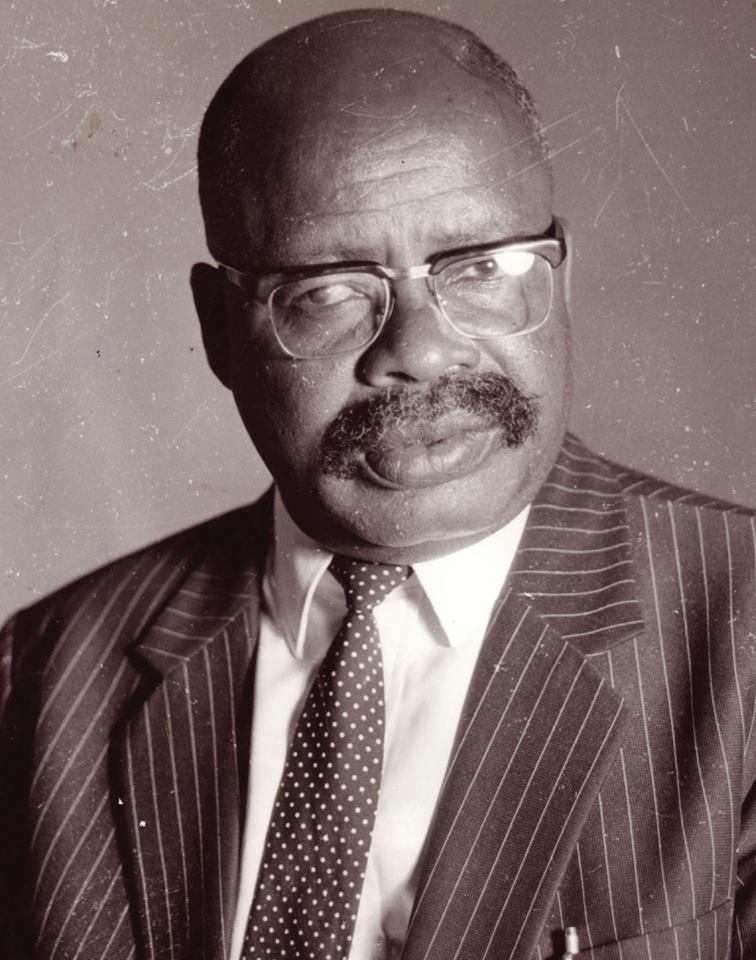
Lion from Mbole Village Daniel Chibbwalu Munkombwe
“We are going the right way,” he says. “Those who preach doom will be very embarrassed. We have already achieved most of them (PF’s promises). First of all, the roads are being worked on and those that haven’t been worked on will be worked on soon. I think Michael Sata is going the right way.”
In conclusion he says: “I want to die a politician that is admirable, a politician that is likeable. Of course you can’t be liked by everybody; you can’t be liked by your perceived opponents. It’s not possible!”


